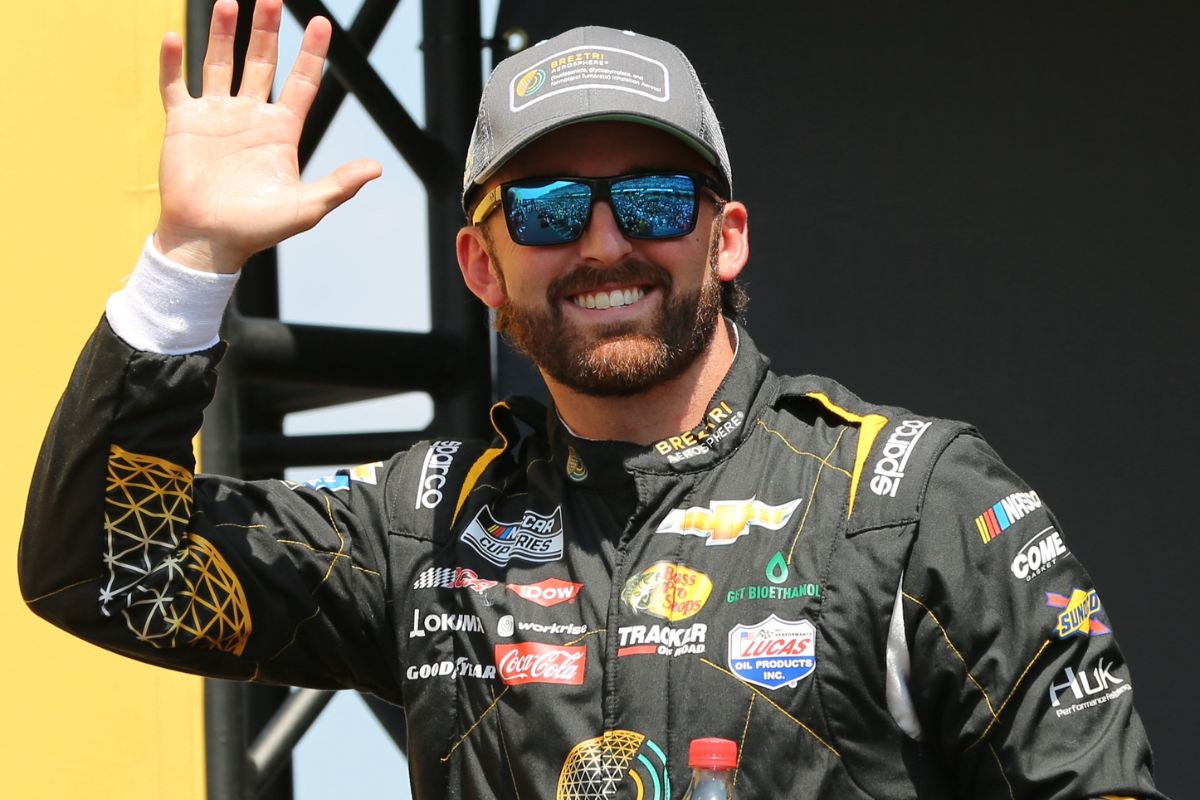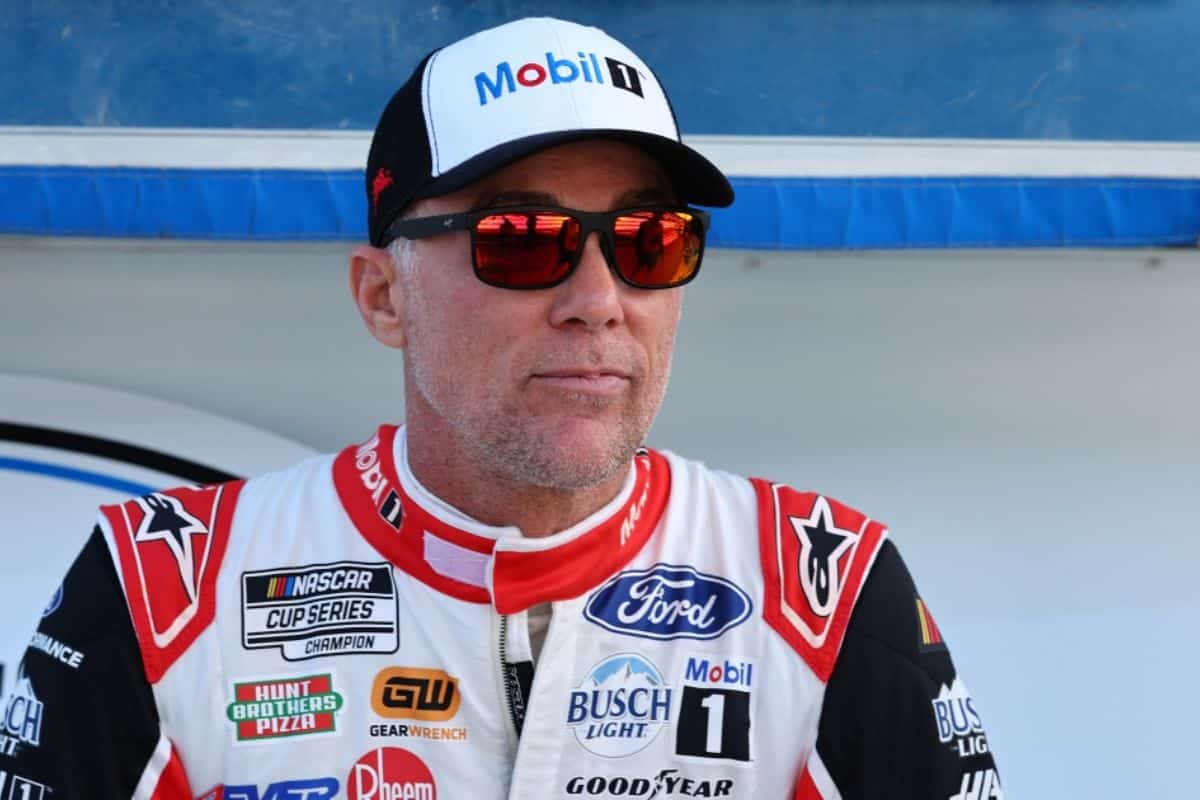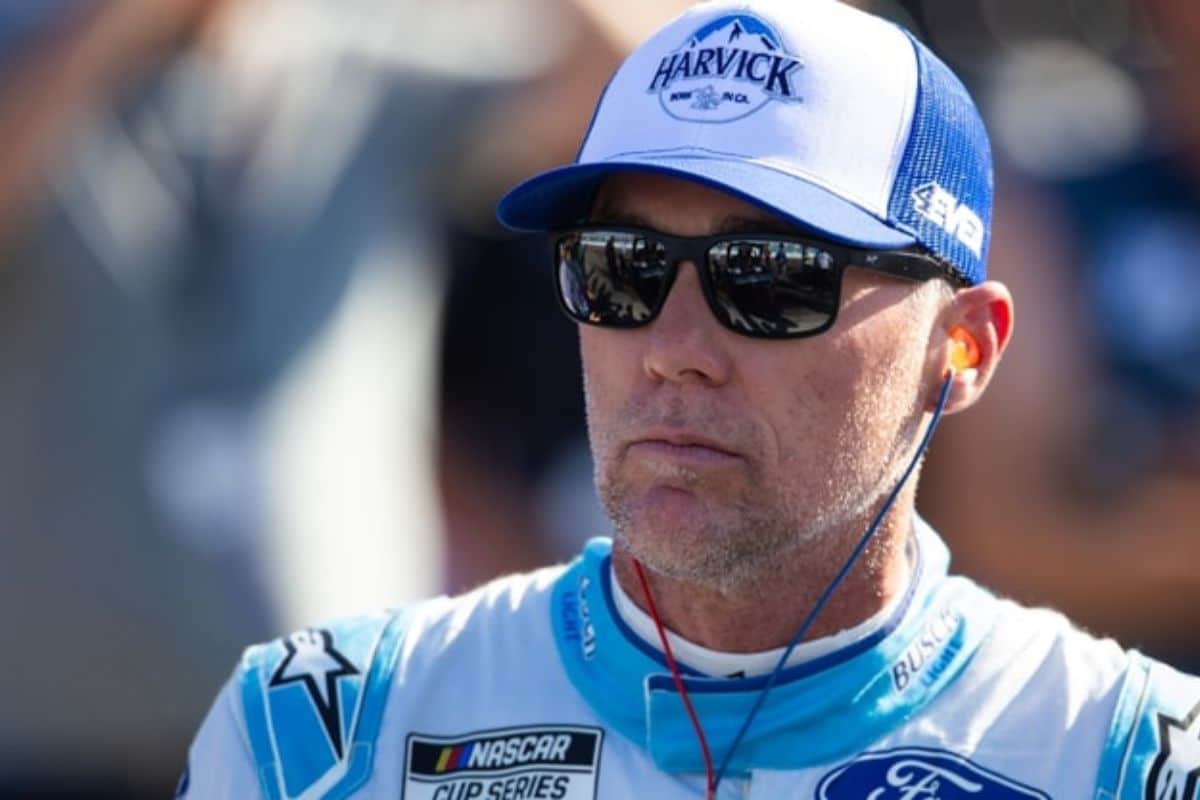Kevin Harvick’s Surprising Admission: Kevin Harvick made a revealing admission regarding Richard Childress Racing‘s (RCR) legacy, highlighting systemic issues within the team. He pointed to the underperformance of Austin Dillon and Kyle Busch, attributing some of the struggles to equipment inconsistencies and performance issues. Harvick emphasized the need for significant improvements in car quality and strategic adjustments. He also noted the mental strain on Dillon, stemming from the high expectations tied to his family name. Harvick’s perspective shines a light on the deep challenges RCR faces and emphasizes the importance of innovation and effective team dynamics for a potential revival. Learn how these factors intertwine.
Key Highlights
- Harvick highlighted systemic issues at RCR affecting driver performance and competitiveness.
- He pointed out the need for significant improvements in RCR’s race car quality.
- Harvick emphasized that equipment inconsistencies are hindering RCR’s success.
- He compared the struggles of both Austin Dillon and Kyle Busch at RCR.
- Harvick suggested that RCR’s legacy is at risk without addressing these performance issues.
Austin Dillon’s Struggles in the 2024 NASCAR Season
Despite his lineage and previous successes, Austin Dillon finds himself grappling with a particularly challenging 2024 NASCAR season. With only two Top-10 finishes and no wins or Top-5 placements, Dillon’s performance starkly contrasts with his past achievements. This downturn has prompted a closer examination of the team dynamics, where the anticipated synergy between Dillon and returning crew chief Justin Alexander has yet to materialize.
Despite their previous successes in 2022 which included three podium finishes, the duo’s efforts this season have not translated into the expected results.
The driver mindset is another critical factor in Dillon’s struggles. The psychological burden of living up to the legacy of his grandfather, Richard Childress, and his previous accomplishments may weigh heavily on him. This mental strain can affect decision-making and performance on the track, contributing to the ongoing difficulties.
Sponsorship impact also plays a significant role. Sponsors expect high performance and visibility, and Dillon’s lackluster results could potentially strain these relationships. The expectation to meet sponsor demands can further exacerbate the challenges faced by the team.
Fan reactions have been mixed, with some expressing disappointment and others remaining hopeful for a turnaround. The loyalty of Dillon’s fanbase is a double-edged sword; while it offers support, it also adds expectations to perform.
Lastly, media scrutiny has intensified. The spotlight on Dillon’s underperformance is magnified by his storied family background and past successes, leading to heightened expectations and critical evaluations by commentators and analysts. This scrutiny can be both a motivator and a source of stress, further complicating Dillon’s quest for improvement in the 2024 season.
Harvick’s Critique and Comparison with Kyle Busch
Kevin Harvick’s critique of Austin Dillon encompasses his race performance and his thorough visibility and influence within the NASCAR circuit, drawing a compelling parallel with Kyle Busch’s similar struggles at Richard Childress Racing. Harvick’s perspective sheds light on the broader team challenges that have impeded both drivers from achieving consistent performance and competitive speed.
From Harvick’s viewpoint, the struggles faced by Dillon and Busch highlight the systemic issues at Richard Childress Racing (RCR). Despite their individual talents, both drivers have encountered substantial team challenges that have hampered their ability to secure consistent performance. Harvick notes that while Dillon’s visibility in races remains moderate, Busch’s high profile brings additional scrutiny to RCR’s competitive struggles.
“They’ve been so quiet that we forgot they were there. I mean, you know at some point you have to really start to turn that situation upside down. They did the crew chief, but that really hasn’t seemed to move the needle.”
“It doesn’t take a whole lot to be able to get these things done, but you do have to have good race cars, and you do have to keep your head on your shoulders for a whole 400-500 miles.” – Harvick
The comparison between Dillon and Busch underlines a shared narrative of occasional competitive speed but a lack of sustained performance. Harvick emphasizes that both drivers, despite their distinct racing styles and backgrounds, encounter similar obstacles within the team framework. This highlights a critical need for RCR to address these underlying issues to enable their drivers to perform at their peak consistently.
Equipment and Performance Issues
Addressing the systemic issues at Richard Childress Racing, Harvick, Dillon, and Busch unanimously point to equipment and performance inconsistencies as major impediments to achieving success on the NASCAR circuit. These seasoned drivers have highlighted that the quality of the race car is a critical determinant of on-track performance, often overshadowing the skill set of the driver. Kyle Busch asserts that, without competitive vehicles, even the most talented drivers face insurmountable challenges, a sentiment shared by his teammates.
“But I look at Kyle Busch’s car, I see his scenario and the speed is not 100% where it needs to be on his car either. I look at Kyle as the leader of the RCR team and the speed, things that they need.” – Harvick
The trio’s collective frustration is rooted in the recurring performance struggles that have plagued the team. Despite the storied legacy of Richard Childress Racing, the organization has encountered persistent equipment issues that have hampered their ability to consistently deliver competitive cars. Harvick, in particular, has been vocal about the necessity for significant car improvements, emphasizing that refined engineering and superior technology are crucial for the team to regain its competitive edge.
“You take that back a step to Austin Dillon’s car, they definitely don’t have the speed. We’ve only seen enough speed out of that car maybe once or twice this year to where it needs to be. Definitely not a situation that I’m sure Richard Childress wants to be in. I think Austin probably expects a lot more out of himself and the team as well. It is definitely so quiet that you don’t know they’re there.” – Harvick
The team challenges extend beyond just the machinery; they encompass the broader operational aspects of the racing outfit. The inability to translate technological advancements into tangible race-day performance has led to significant legacy concerns. Dillon and Busch have expressed that without addressing these foundational equipment issues.
Strategy Woes and In-Race Communication
Tackling the complexities of race-day strategy and in-race communication, Richard Childress Racing has encountered significant challenges that have compounded their equipment and performance issues, resulting in increased frustration among drivers. This season, Austin Dillon’s in-race frustrations have been indicative of broader systemic problems within the team.
A notable instance occurred during the Richmond race, where Dillon, exasperated by strategic errors, openly criticized the team’s decisions over the radio. This public airing of grievances highlighted the breakdown in team communication and emphasized the environment within the squad.
“We have dumb**s strategy every f*cking week! We’re indecisive, we don’t know what to do!”- Dillon
, “Settle down, drive the car and focus here. It ain’t doing no good talking. Just focus.“ – Childress replied
Dillon’s vocal outburst elicited a response from his grandfather and team owner, Richard Childress, who urged him to maintain his focus on driving and minimize distractions. This incident shines a light on the strained driver-team dynamics, which have only intensified amid recurring performance struggles.
Despite a brief moment of respite with a season-high finish of sixth place at Gateway, the entire campaign has been fraught with difficulties, including a dishearteningtoyota-save-mart-350-full-results/”> 36th place finish at Sonoma due to a pileup.
Looking Ahead
As the 2024 NASCAR season progresses, the spotlight remains on Austin Dillon and Richard Childress Racing’s ability to address their performance deficiencies. With Dillon currently languishing at 31st in the points standings, the team faces an imminent threat of a career-worst finish for the driver, which highlights the urgency for strategic improvements. This situation raises the question of how Richard Childress Racing (RCR) will safeguard its legacy impact while fostering a positive future outlook.
Central to RCR’s revival is the team dynamics between Austin Dillon and Kyle Busch. Busch, despite his formidable reputation, has encountered a season riddled with missed opportunities, emphasizing the necessity for a detailed approach to race strategy and car performance. Effective team dynamics are vital in this scenario, as they promote a cohesive environment where both drivers can thrive and contribute to the collective success of the team.
Driver development also plays an important role in RCR’s strategy moving forward. For Dillon, refining his driving techniques and racecraft is crucial to overcoming current performance barriers. Simultaneously, Busch’s experience and skillset provide a valuable resource for mentoring and elevating the competitive edge of the team.
Strategic adjustments, including innovations in car setup and race-day strategies, will be fundamental in reclaiming RCR’s standing in the NASCAR Cup Series. The team must utilize data-driven insights to make informed decisions that improve their race performance.
News in Brief: Kevin Harvick’s Surprising Admission
The 2024 NASCAR season has highlighted significant challenges for Austin Dillon, with Kevin Harvick’s critiques drawing attention to comparisons with Kyle Busch.
Issues with equipment, performance, and strategy have compounded these struggles, emphasizing the need for improved in-race communication.
Harvick’s insights highlight the importance of addressing these multifaceted problems to uphold Richard Childress’ legacy.
Looking ahead, a strategic recalibration and improved team dynamics are imperative for a more competitive performance in future races.
Our Reader’s Queries
Q. How many races did Kevin Harvick win for Richard Childress?
A. Kevin Harvick secured his last victory with Richard Childress Racing at Phoenix, a track where he had often displayed his prowess. Capitalizing on Carl Edwards’ fuel shortage with just two laps remaining, Harvick seized the opportunity to claim the win. In total, Harvick amassed 23 victories during his tenure with RCR.
Q. When did Kevin Harvick leave Richard Childress Racing?
A. In 2014, Stewart-Haas Racing clinched both the team and Cup Series Championship. The move was solidified on January 22, 2013, when Kevin Harvick’s switch to Stewart-Haas Racing for the upcoming season was officially announced. Both Harvick and Richard Childress acknowledged the mutual decision to part ways, emphasizing that it marked a new chapter in Harvick’s career.
ALSO READ: Kevin Harvick Picks Denny Hamlin as Iowa Cup Race Favorite



